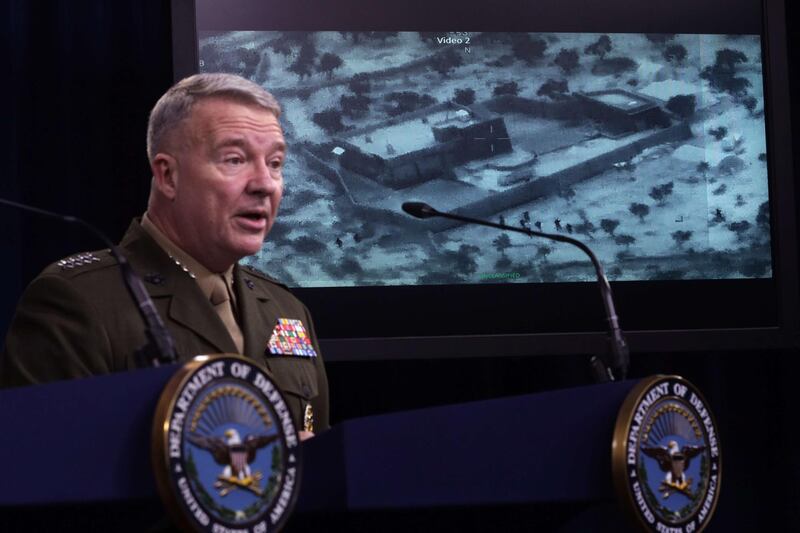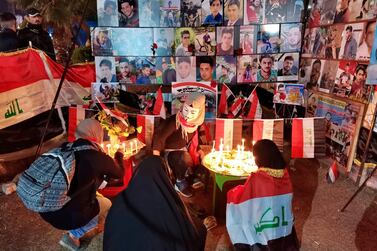The head of the US Central Command said on Saturday that reconnaissance is behind the “relative success” of a maritime fleet Washington has assembled in the Arabian Peninsula to deter Iran.
The International Maritime Security Construct (IMSC) started this month and is based in Bahrain. The force had already been operational following a series of attacks on oil ships the US and Saudi Arabia blamed on Iran earlier this year.
Kenneth McKenzie Jr told the Manama Dialogue that the IMSC has prevented the type of clandestine attacks Iran had room to mount previously.
“Mercantile ships from several countries have been attacked or confiscated by Iran’s military forces. Had Iran not undertaken their actions, there might not have been a need for the IMSC,” Gen McKenzie said.
Bahrain, a base for the US Fifth Fleet, as well as Saudi Arabia and the UAE, are IMSC members. Australia and Britain are its main Western contributors.
“The biggest key to the IMSC partnership has not been the presence of armed naval vessels in the area but instead the constant stare of reconnaissance assets,” Gen McKenzie said.
He said Iran had made sure in earlier attacks on maritime shipping that its actions were “non-attributable”.
“They do not do so well in the spotlight,” he said. "The value of having additional reconnaissance resources is almost certainly having an effect.”
With the region facing a heightened Iranian threat, a senior US defence official sought to ease concerns about Washington’s perceived disengagement from the Middle East.
John Rood, undersecretary of defence for policy, told the Manama Dialogue there were “14,000 reasons” why US “commitment remains very strong” to its Arab Gulf allies, referring to the number of additional US forces that arrived in the region since May.
“There has been some discussion in this conference about whether the US wishes to disengage from the region, whether there was a smaller US commitment toward the Middle East,” Mr Rood said.
“Those 14,000 additional forces were not present here a few months ago,” he said, adding that they aim at “deterring Iranian aggression and providing the US with a formidable array of capabilities to defend against and, if necessary, respond forcefully to Iranian aggression”.
He said the US had also deployed more anti-missile batteries, with Tehran and its proxies having “demonstrated their capabilities and intent to use their missile arsenal as a tool of regional coercion”.






